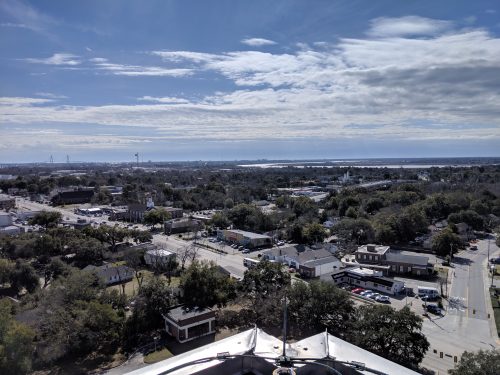Urban Land Institute to Advise City of North Charleston on Economic Development and Maintaining Housing Affordability
A group of nationally renowned land use and urban planning experts representing the Urban Land Institute (ULI) will be making recommendations next week to the City of North Charleston, South Carolina; Charleston County, and South Carolina Coastal Conservation League on improvements to Rivers Avenue and the former U.S. Naval Hospital site. ULI is a global, multidisciplinary real estate organization whose work is driven by more than 43,000 members dedicated to responsible land use and building thriving, sustainable communities.
Public reception with experts
Urban Land Institute Public Findings Presentation
The ULI representatives, convened through ULI’s renowned Advisory Services Program, will be visiting the city from March 31 to April 5. Sponsored by South Carolina Coastal Conservation League, Charleston County, and the City of North Charleston, the Advisory Services panelists will consider:
- The appropriate density/scale of development;
- Tools and strategies to encourage investment while mitigating or minimizing the disruption to existing neighborhoods;
- The role of private/public partnerships; and
- Potential public investments to the area’s built environment.
As part of this visit, the panel will look at how to support the goals of the greater community while focusing on preserving the neighborhood’s quality of life and affordability.
Leading ULI member Andrew Irvine, a senior principal at Stantec in Denver, Colorado, will chair the panel. “It is both humbling and invigorating to be able to engage with North Charleston to explore meaningful solutions to the challenges and opportunities our panel is asked to consider,” said Irvine. “Our team comes to the city as a resource, with no preconceived ideas or biases. We believe that the residents are the experts within their own community, and our job is to listen, to understand their aspirations, and to apply our best professional expertise to create meaningful and realistic recommendations.”
Irvine will be joined by: Catherine Buell, vice president, policy and programs, Greater Washington Partnership, Washington, D.C.; Veronica O. Davis, cofounder, Nspiregreen, LLC, Washington, D.C.; Aletha Dunston, executive director, Fort Harrison Reuse Authority, Indianapolis, Indiana; Thomas Jansen, director, HR&A, Los Angeles, California; Emil Malizia, research professor, Department of City and Regional Planning, The University of North Carolina at Chapel Hill, Chapel Hill, North Carolina; Paul Peters, principal, Hood Design, Oakland, California; Lance Robins, chief executive officer, Urban Smart Growth, Los Angeles, California; and Gayle Starr, managing director, Capital Markets, Prologis, San Francisco, California.
During the week, the panel will tour the former U.S. Naval Hospital and surrounding neighborhoods, and interview a variety of community stakeholders before developing a set of recommendations that will be shared at a public presentation at the conclusion of the panel’s visit on Friday.
Now in its 72nd year, the ULI advisory services program assembles experts in the fields of real estate and land use planning to participate on panels worldwide, offering recommendations for complex planning and development projects, programs and policies. Panels have developed more than 700 studies for a broad range of land uses, ranging from waterfront properties to inner-city retail.
According to Thomas Eitler, senior vice president of ULI’s advisory services program, the strength of the program lies in ULI’s unique ability to draw on the substantial knowledge of its 43,000-plus members, including land developers, engineers, public officials, academics, lenders, architects, planners and urban designers. “The independent views of the panelists bring a fresh perspective to the land use challenge,” Eitler said. “The advisory services program is all about offering creative, innovative approaches to community building.”
Past sponsors of ULI advisory service panels include federal, state and local government agencies; regional councils of government; chambers of commerce; redevelopment authorities; private developers and property owners; community development corporations; lenders; historic preservation groups; non-profit community groups; environmental organizations and economic development agencies.



